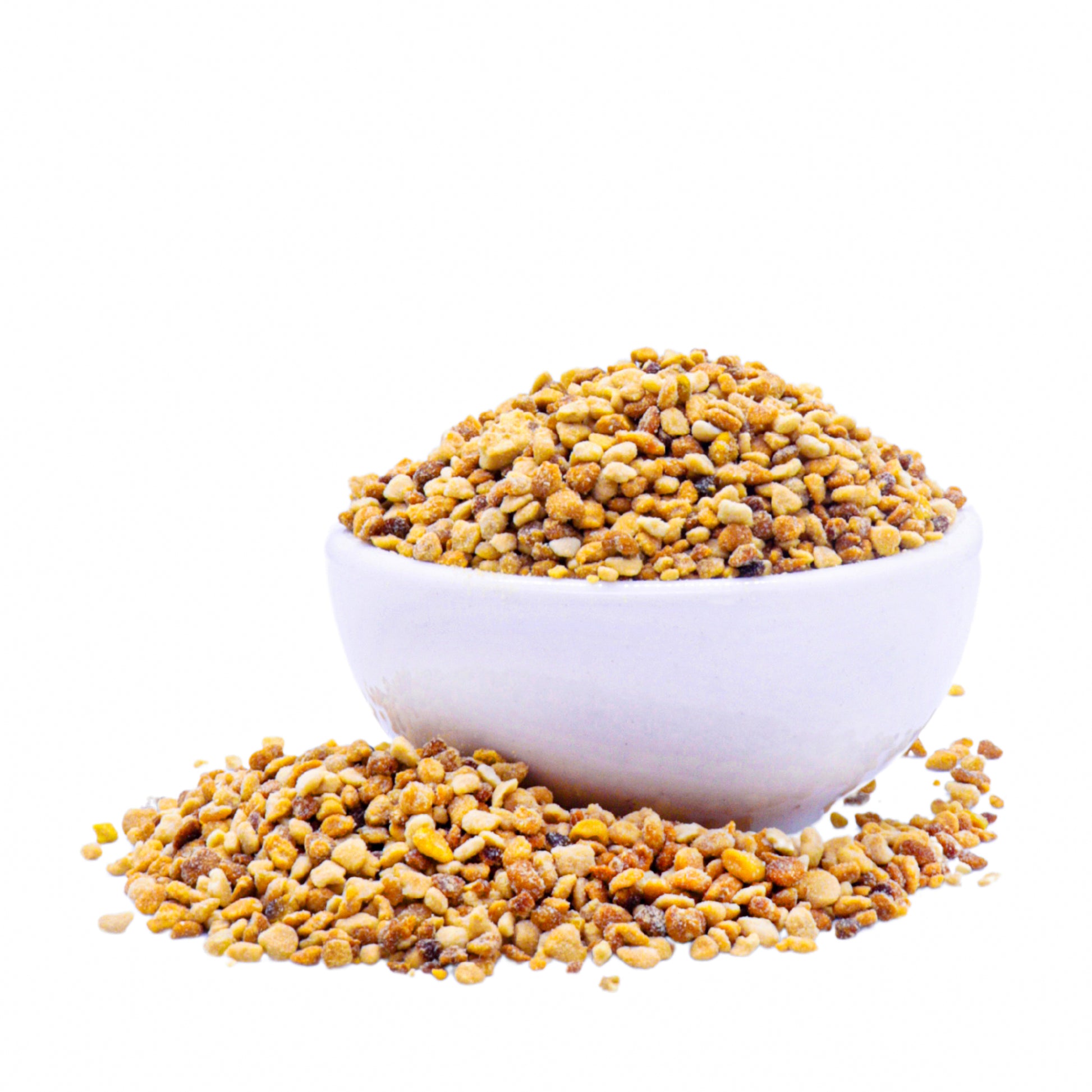Sattvic Foods
Bee Pollen | Nature's Complete Superfood
Couldn't load pickup availability
Bee Pollen, collected naturally by honeybees, is one of nature’s most nutrient-dense foods. Packed with proteins (around 40%), free amino acids, B-complex vitamins, folic acid, minerals, and antioxidants, it offers nutritional benefits not commonly found in animal products. About half of its protein exists as free amino acids, ready for easy absorption by the body.
- 100% natural and additive-free
- Sustainably and ethically harvested
- High-quality, nutrient-dense superfood
Our Bee Pollen is sourced from the same Beehives in Uttaranchal from where our honey is obtained.
- Smoothies & Shakes: Blend 1–2 tsp with fruits and milk or plant-based alternatives.
- Yoghurt & Breakfast Bowls: Sprinkle over yoghurt, oatmeal, or cereals.
- Salads: Add to fresh salads for a crunchy, nutrient-rich topping.
- Recipes: Mix into granola, Bircher muesli, or homemade energy bars.
Recipes using Bee Pollen Bircher Muesli
- Complete Nutrition: Rich in protein, amino acids, vitamins, and minerals.
- Supports Immunity: May aid in maintaining immune function and overall vitality.
- Digestive Support: Works best when taken with fruit to gently support intestinal health.
- Energy & Vitality: Nutrient-dense composition helps promote sustained energy levels.
Store in a cool, dry place
Bee pollen is a natural superfood collected by honeybees from flowers. It is packed with proteins, free amino acids, vitamins, and minerals, making it one of the most nutrient-dense foods.
2. How does bee pollen support immunity?
Bee pollen contains antioxidants, vitamins, and minerals that help maintain immune function.
3. Can bee pollen be added to smoothies and yoghurt?
Yes! One of the easiest ways to enjoy bee pollen is by adding it to smoothies, yoghurt, breakfast bowls, or cereals.
4. How is Sattvic Foods bee pollen sustainably harvested?
Our bee pollen is collected from hives in Uttaranchal without harming the bees or disrupting their routine.
5. What nutrients are in bee pollen?
Bee pollen is rich in protein (about 40%), free amino acids, B-complex vitamins, folic acid, and minerals. About half of the protein is in free amino acid form, making it easily absorbed by the body for maximum nutrition.
6. Is bee pollen safe for everyone?
Bee pollen is generally safe for most people. However, individuals with severe pollen allergies, asthma, or bee product sensitivities should avoid it. Pregnant or breastfeeding women should consult a healthcare professional before use.
7. Can bee pollen boost energy and vitality?
Yes! With its dense protein, amino acids, and vitamins, organic bee pollen can help provide sustained energy and support overall vitality when included in your daily diet.
8. How should bee pollen be stored for freshness?
Store bee pollen in a cool, dry place away from sunlight. For prolonged freshness, refrigeration is recommended. Keep it sealed in an airtight container to preserve its nutrients.
9. How does bee pollen compare to animal-based protein sources?
Bee pollen contains more amino acids per gram than many animal-based proteins, such as beef, eggs, or cheese. Half of its protein exists in free amino acid form, making it quickly digestible and highly bioavailable.
10. Can bee pollen support digestive health?
Yes! Consuming bee pollen with fruits may gently aid intestinal health by promoting a balanced gut flora. This is one of the many nutritional benefits of bee pollen for everyday wellness.
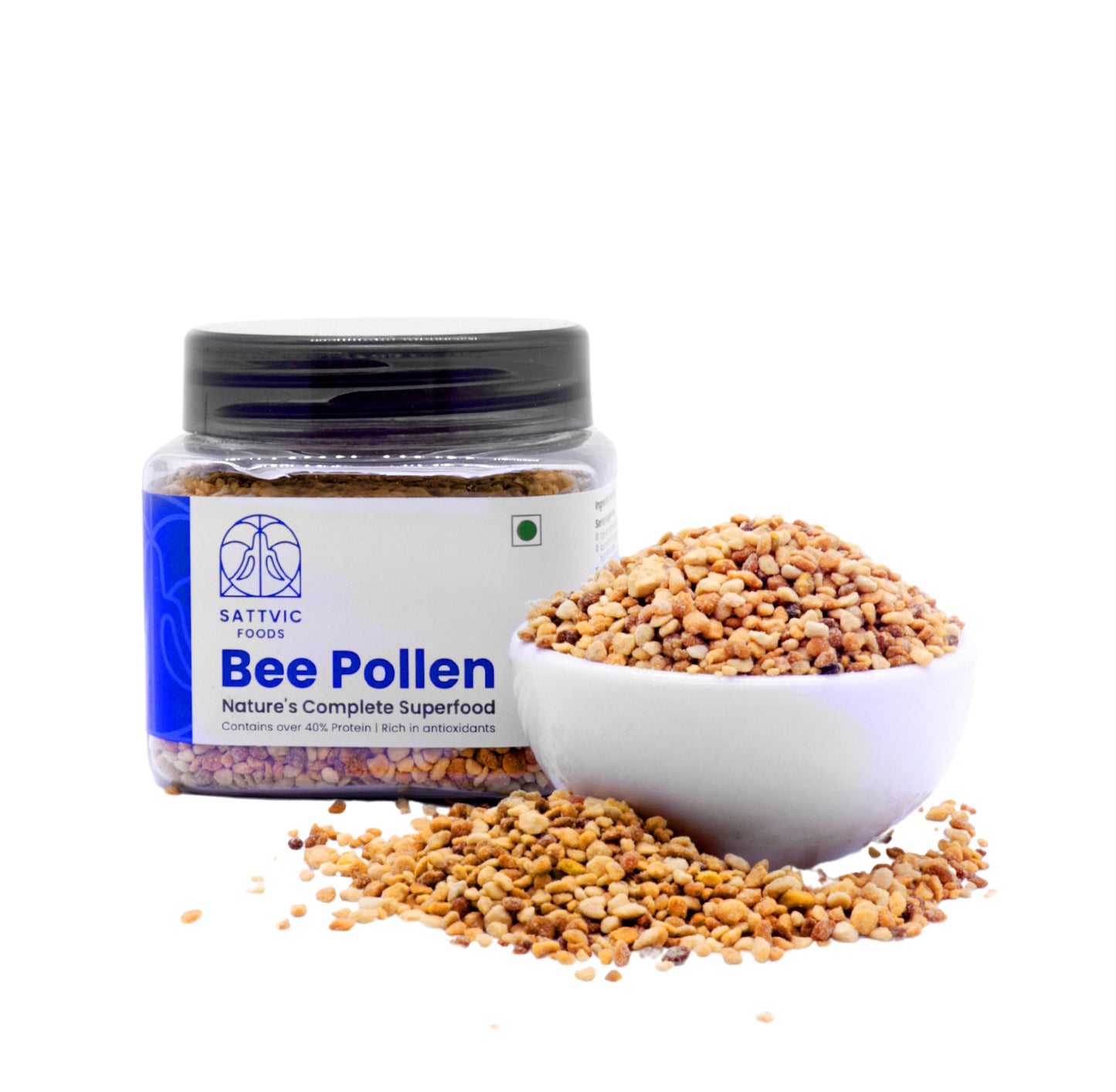
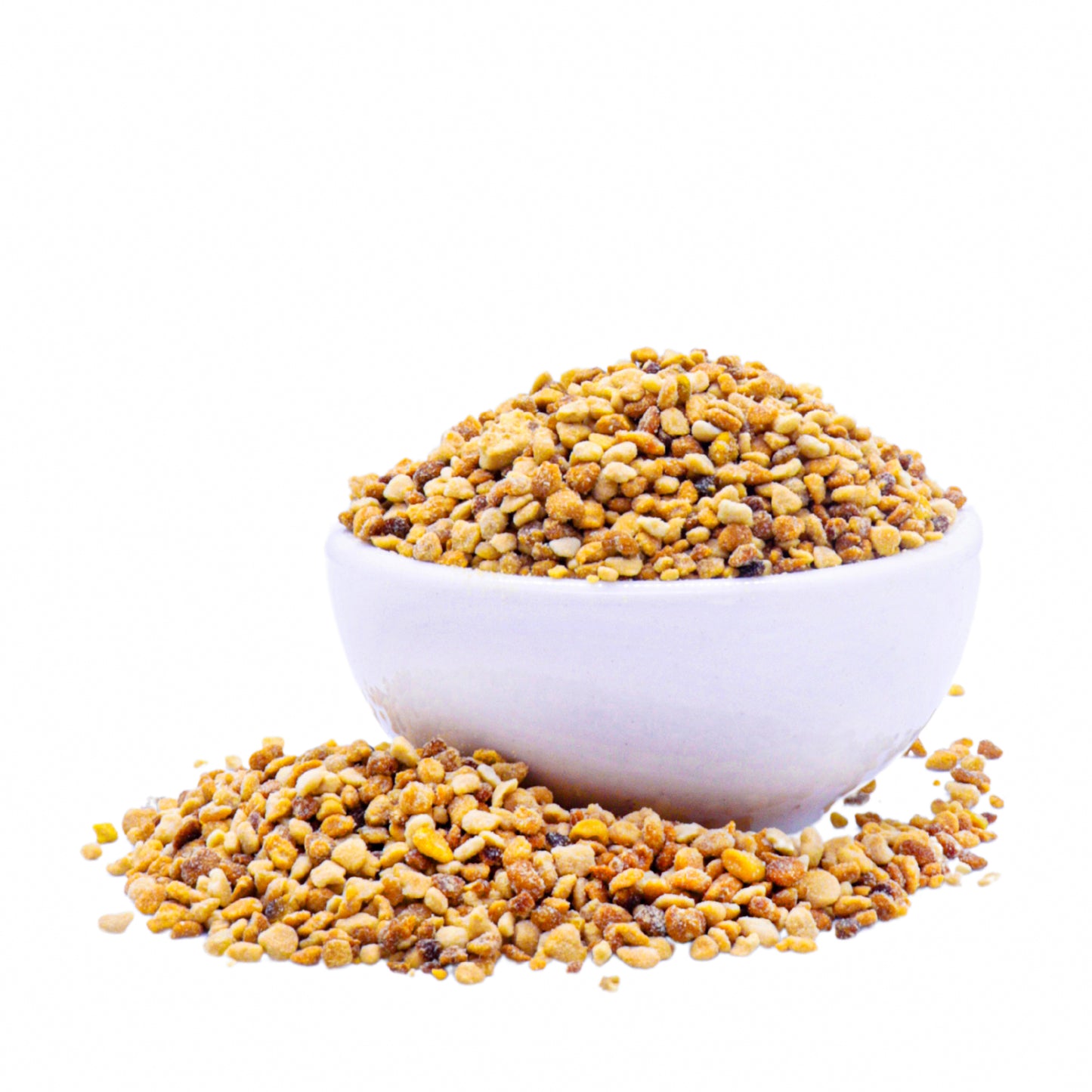
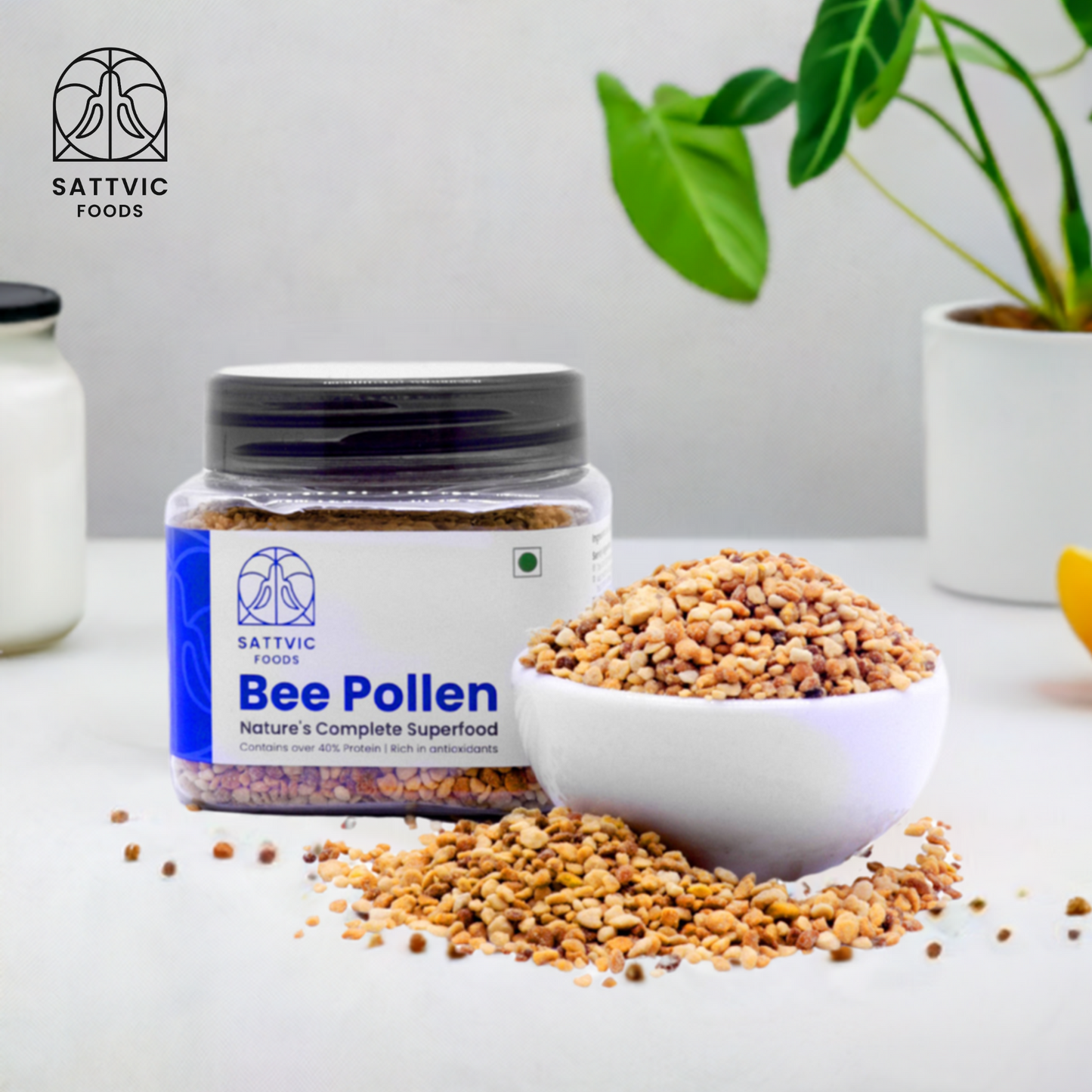
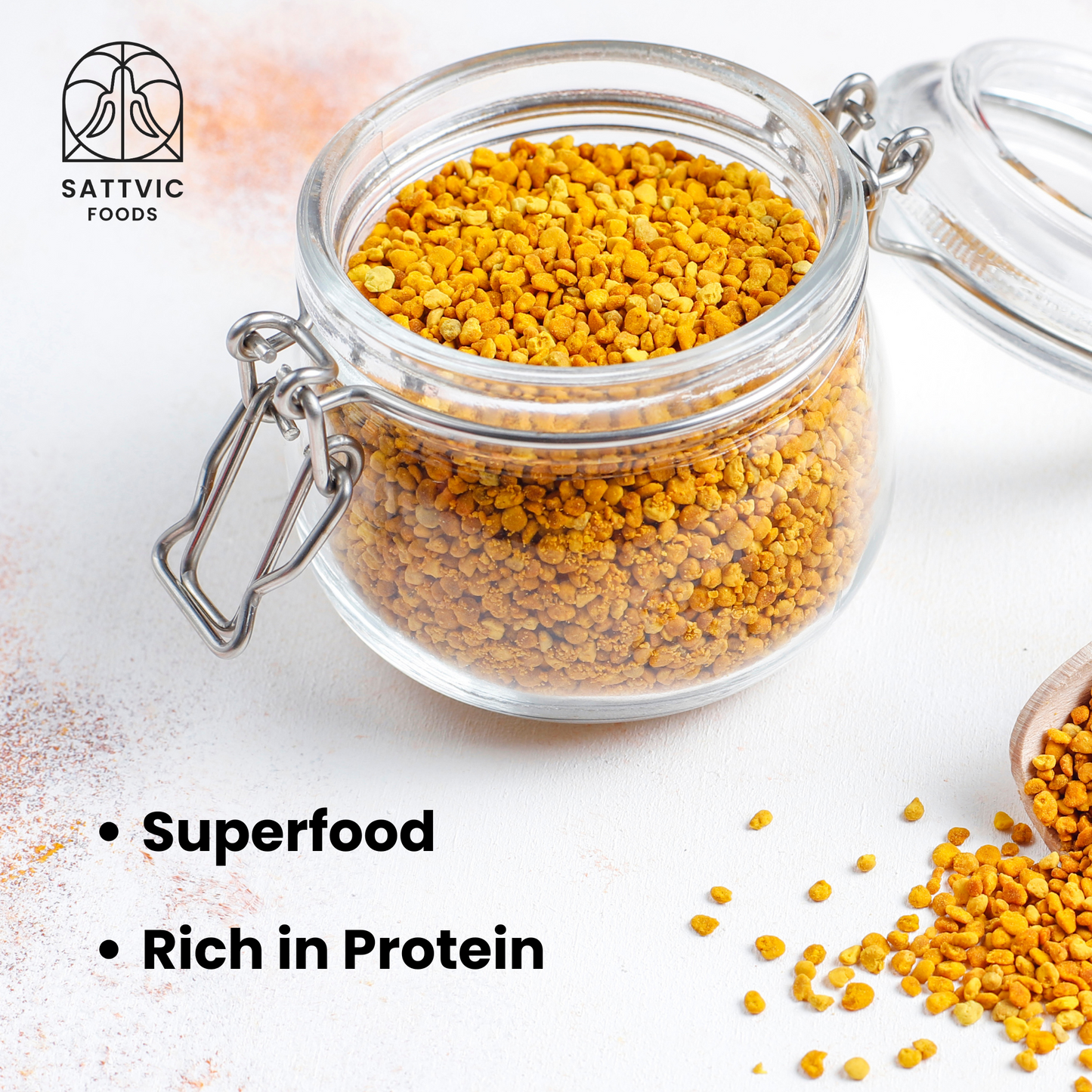
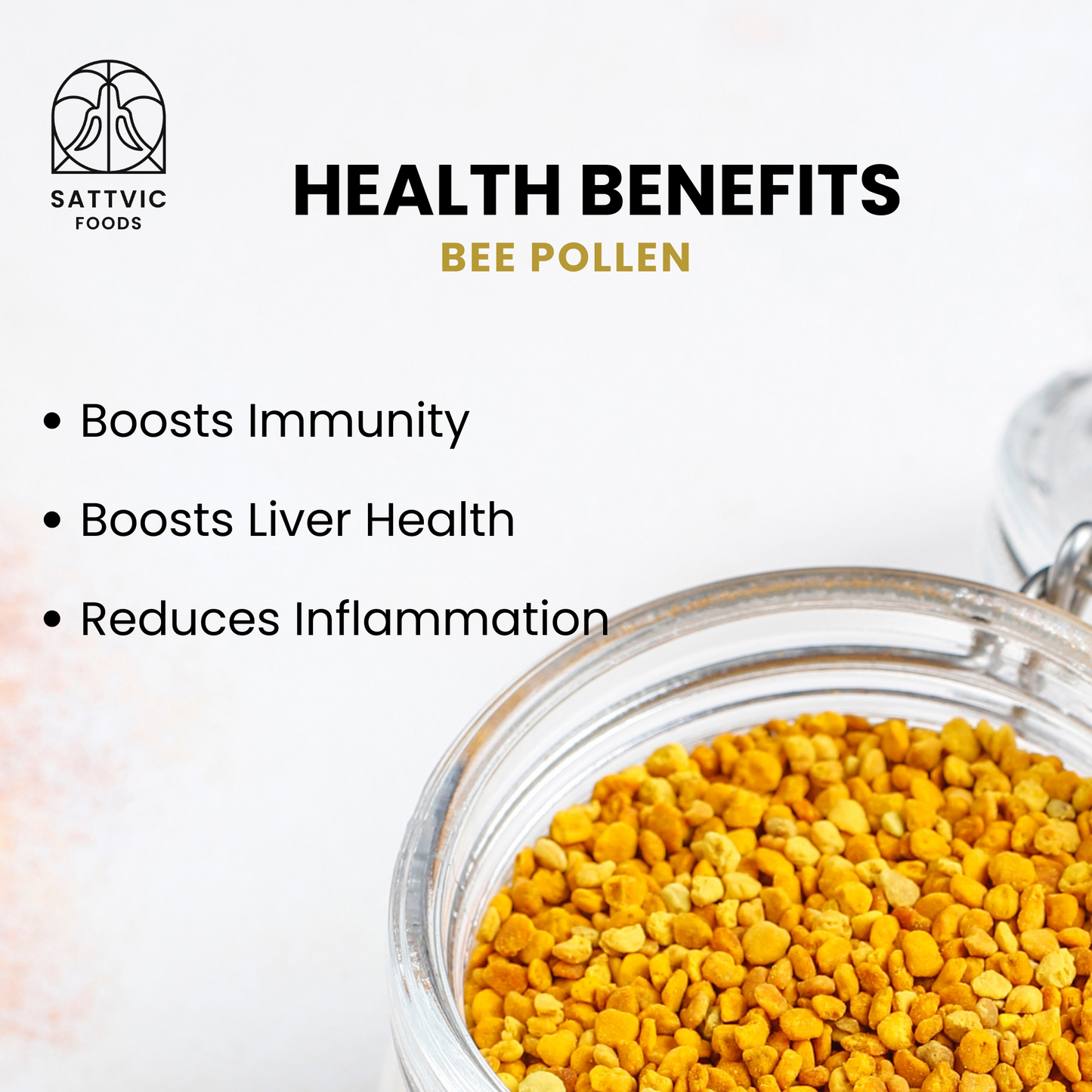
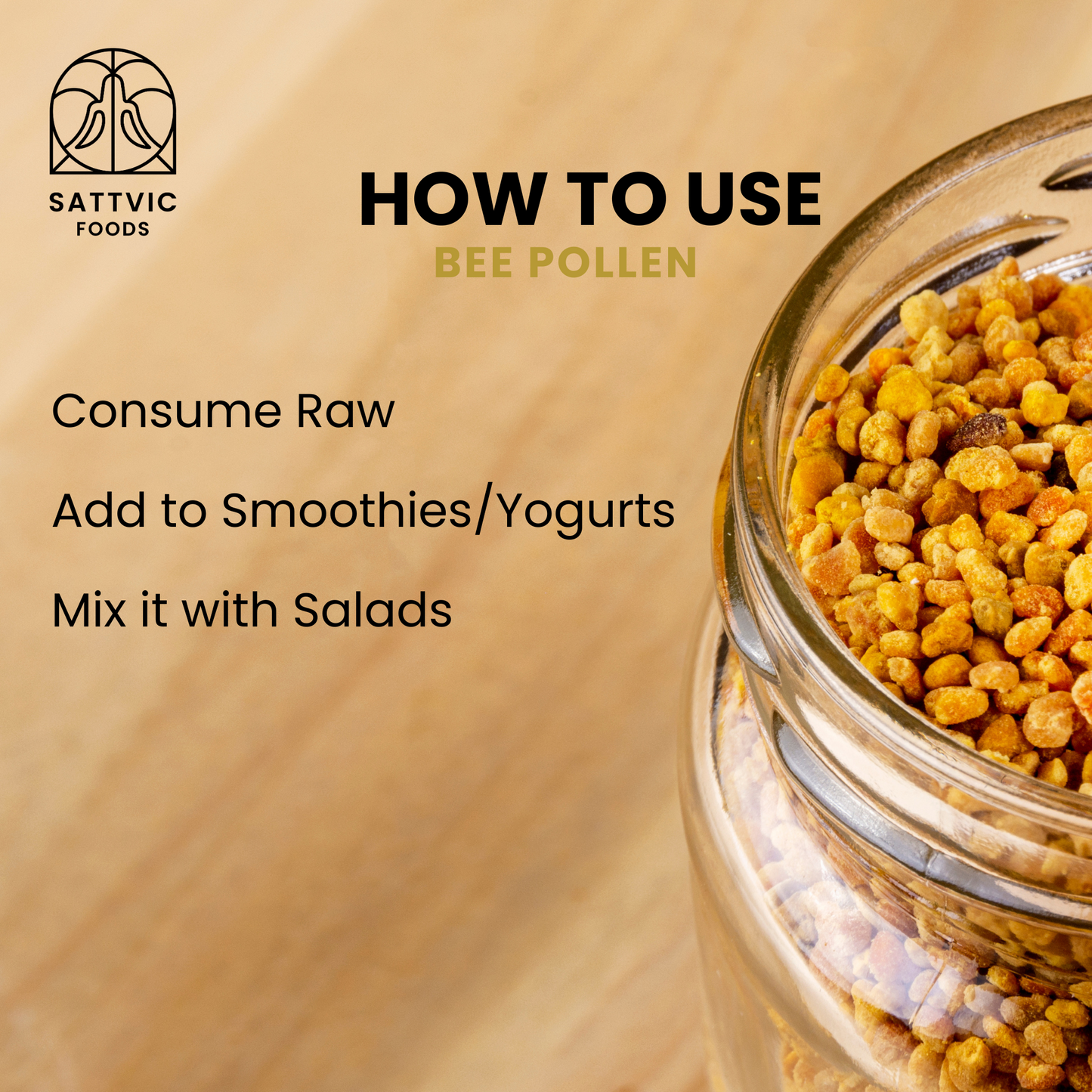
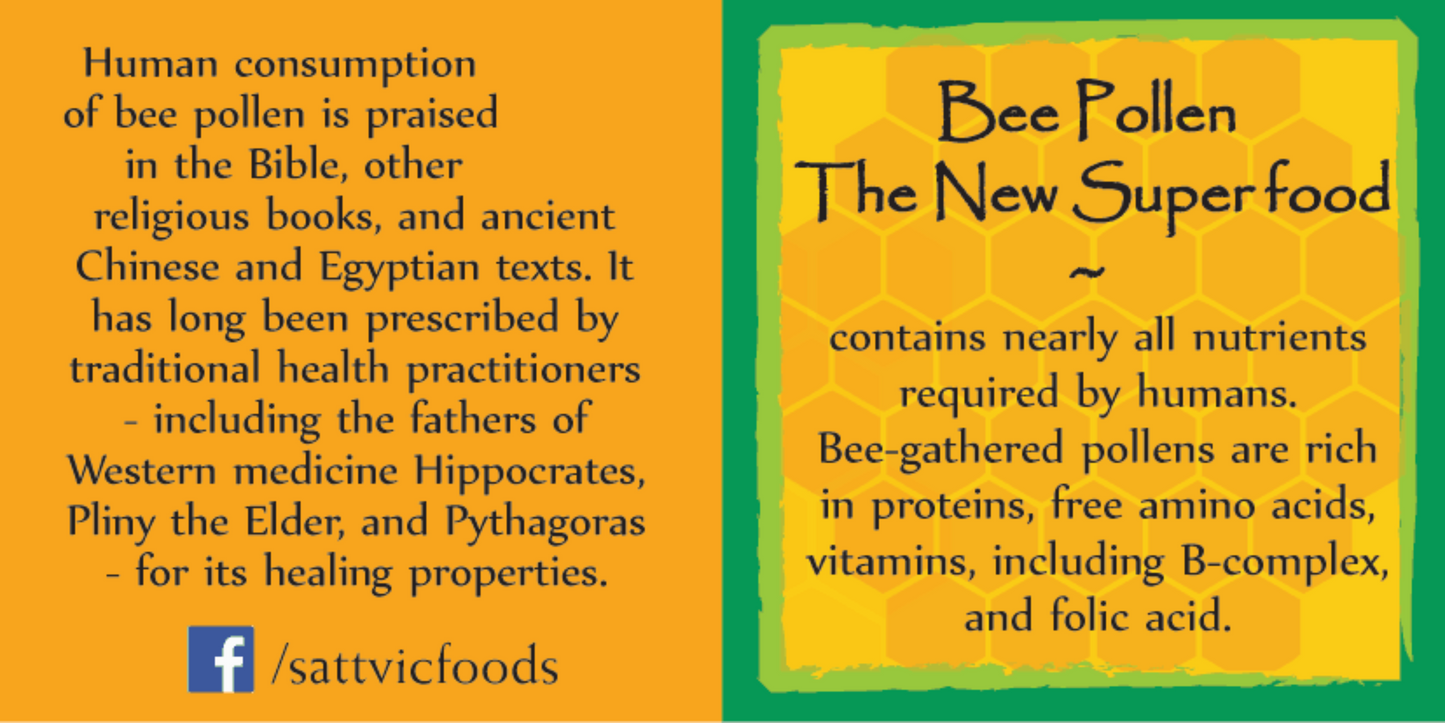
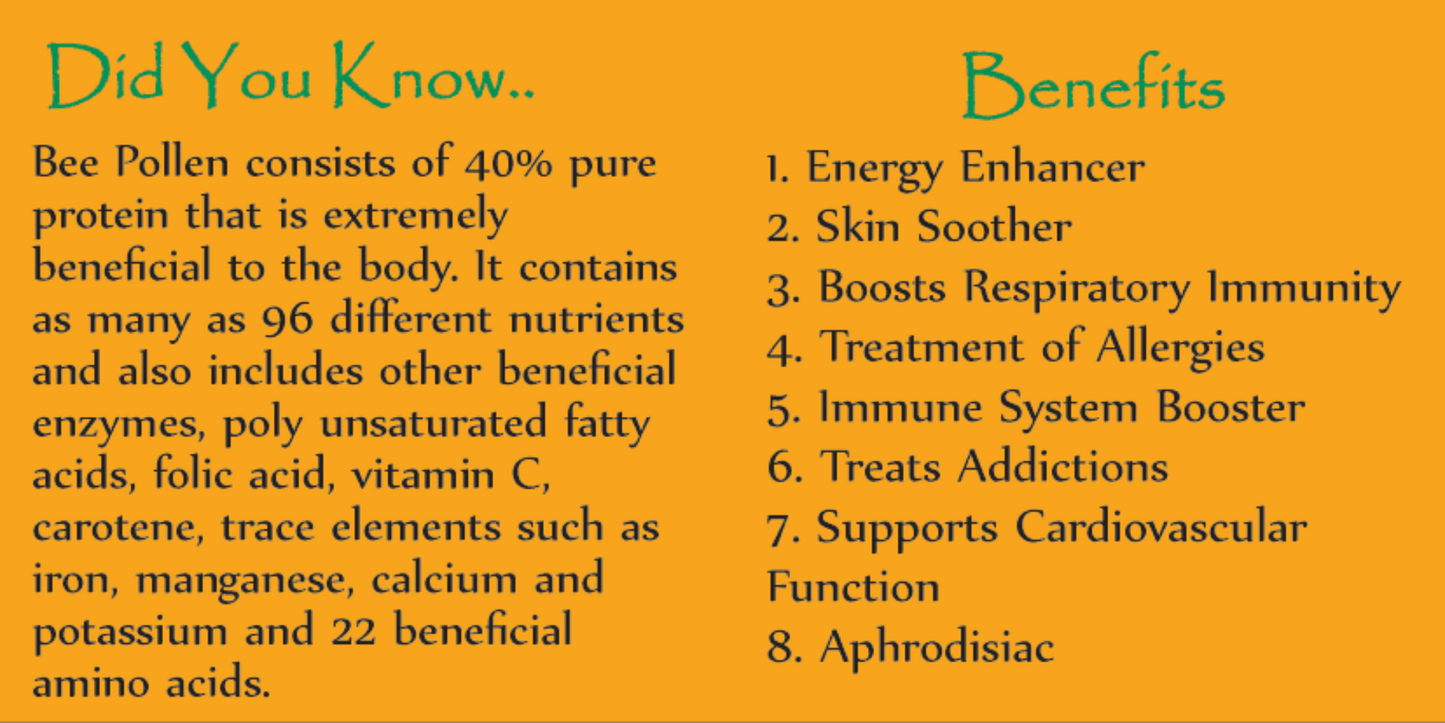

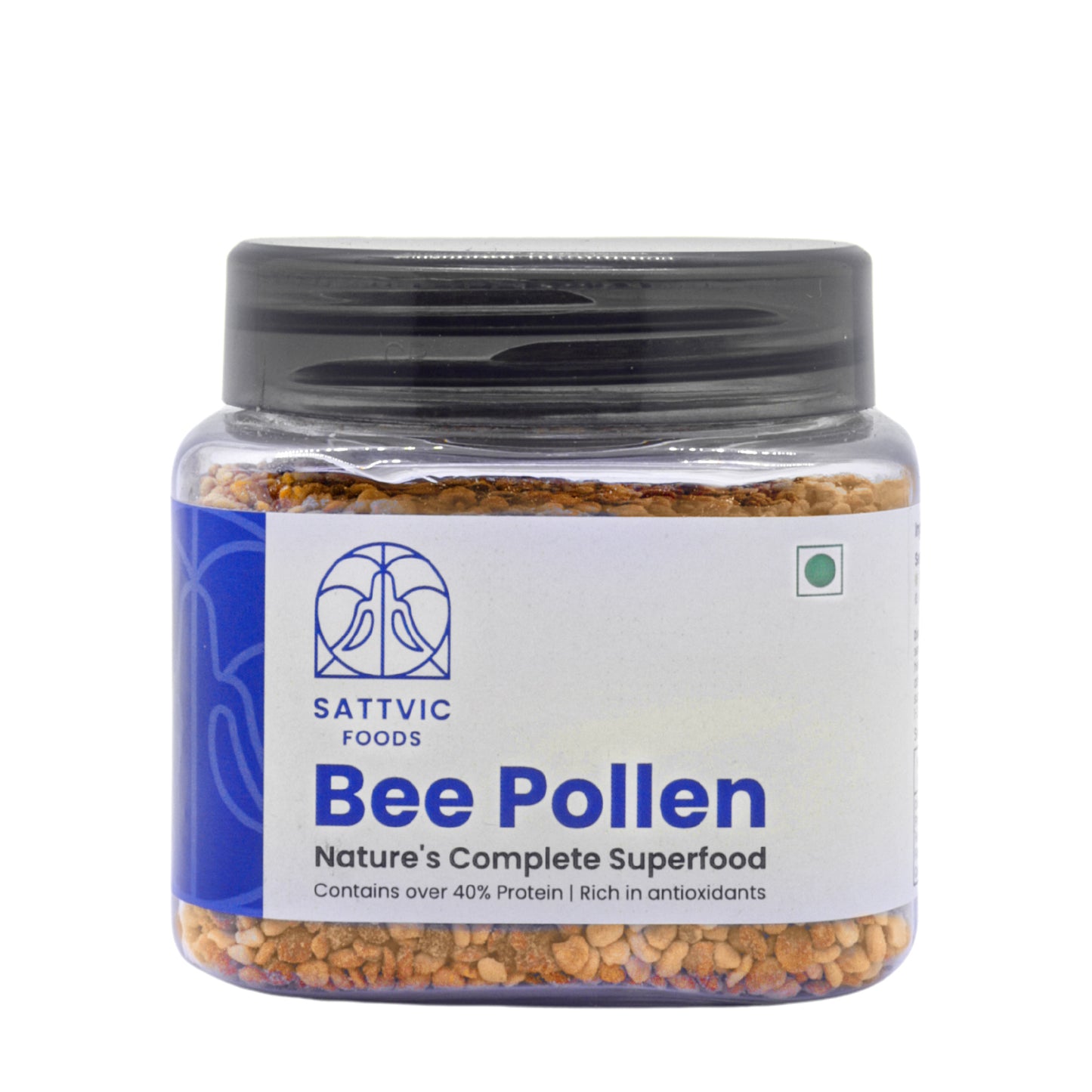
Trusted delivery protection for all your orders
I have tried bee pollen from Sattvic. Its tasty and energetic. My kids also love it.
Bee Pollen - Nature's complete Superfood
Bee Pollen - Nature's complete Superfood


